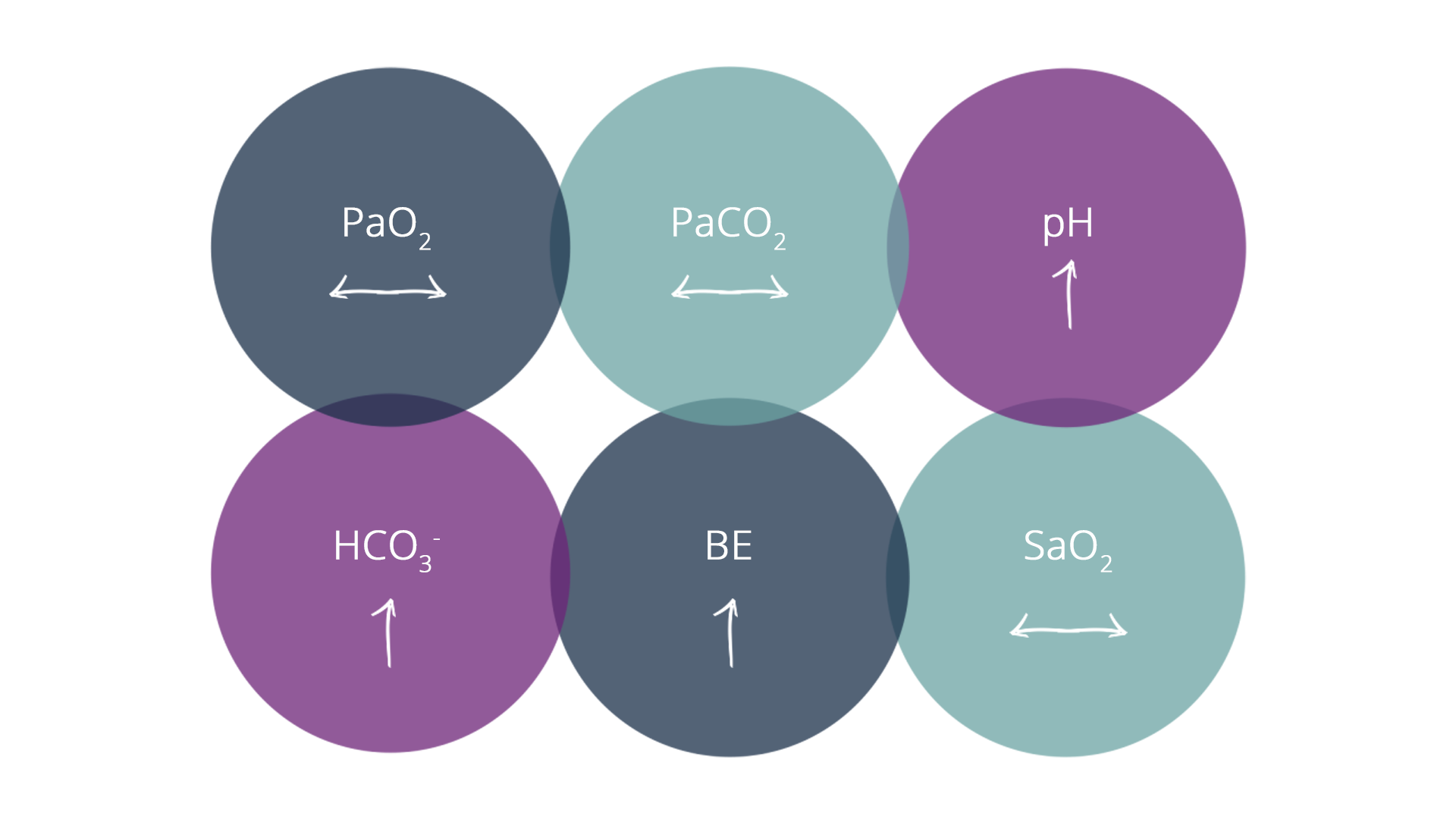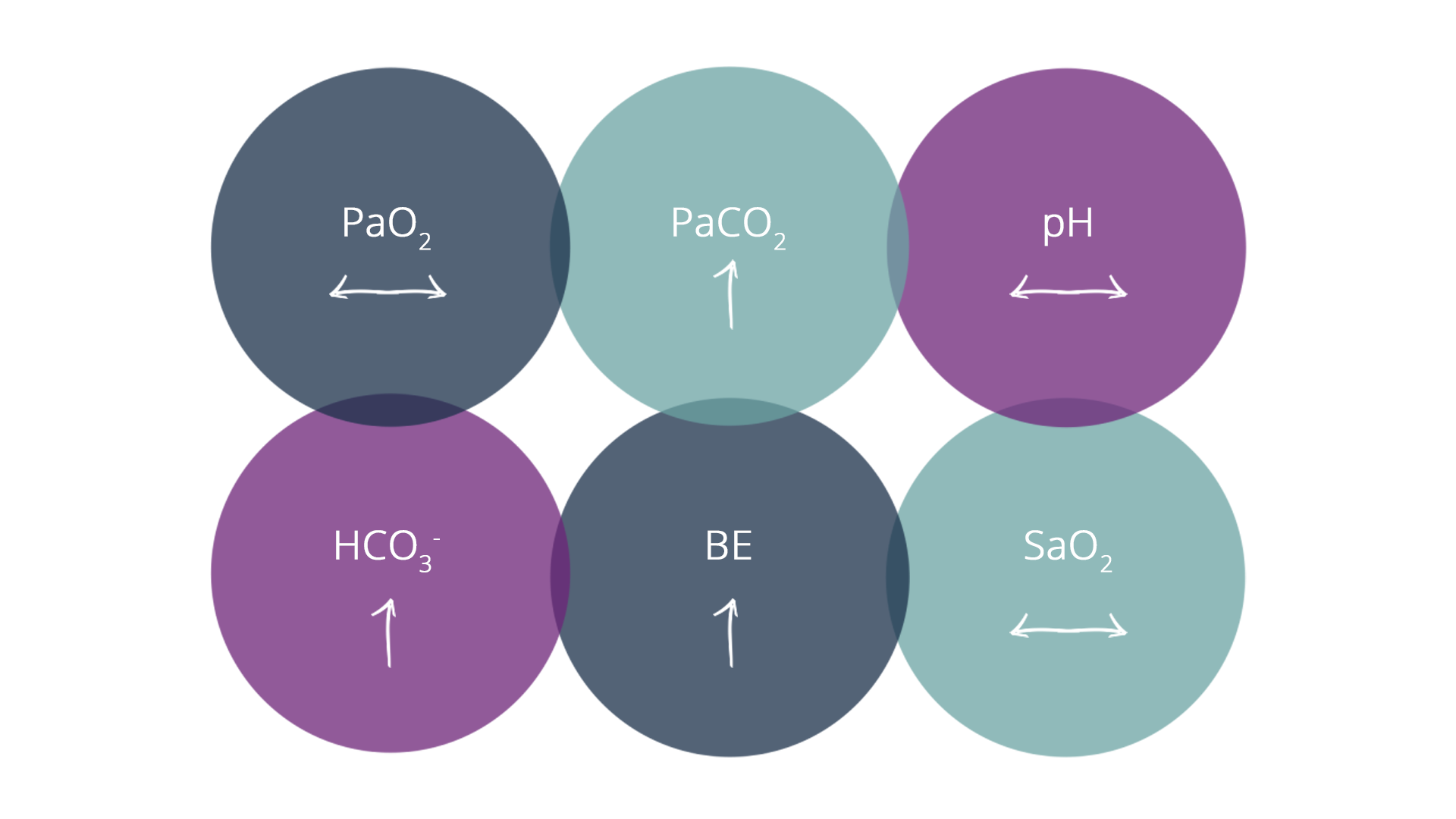Metabolic Alkalosis
If there is a metabolic abnormality that is causing an alkalosis, this is a metabolic alkalosis. A common cause is the loss of acid from vomiting or the renal loss of hydrogen ions caused by loop and thiazide diuretics. The loss of acid promotes the reabsorption of bicarbonate by the kidneys, and the excess bicarbonate in the system causes an alkalosis.
Another example is the excess ingestion of indigestion tablets which would cause an excess bicarbonate in the system. Blood gas results would differentiate this from a respiratory alkalosis, as opposed to a respiratory alkalosis, because the bicarbonate level would be abnormally high (see below).

Diagram: Uncompensated Metabolic Alkalosis
An excess of bicarbonate in the system will prompt the respiratory system to begin retaining carbon dioxide in an attempt to neutralise the pH; remember acid plus alkali equals water, which is neutral pH. This respiratory compensation is a depression of respiratory rate, and occurs within hours of the development of metabolic alkalosis.

Diagram: Metabolic Alkalosis with Complete Respiratory Compensation
While it’s useful to understand the principles of blood gas interpretation, in practice a lot of these patterns are highly unlikely. For example, we are unlikely to see the phenomenon chronic metabolic alkalosis with complete respiratory compensation.

